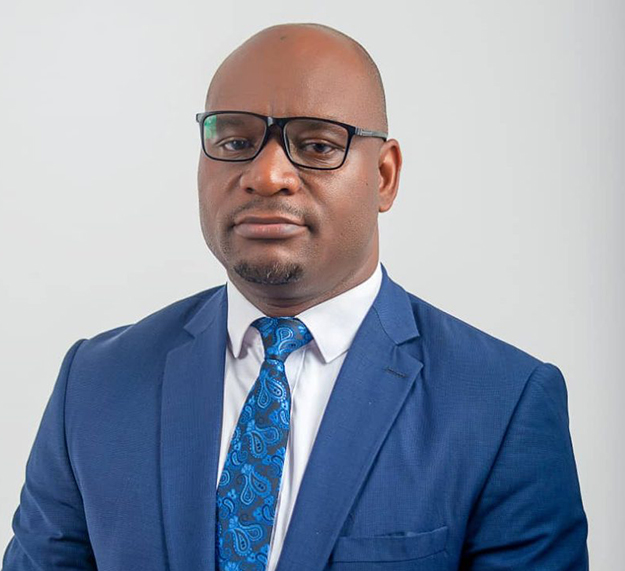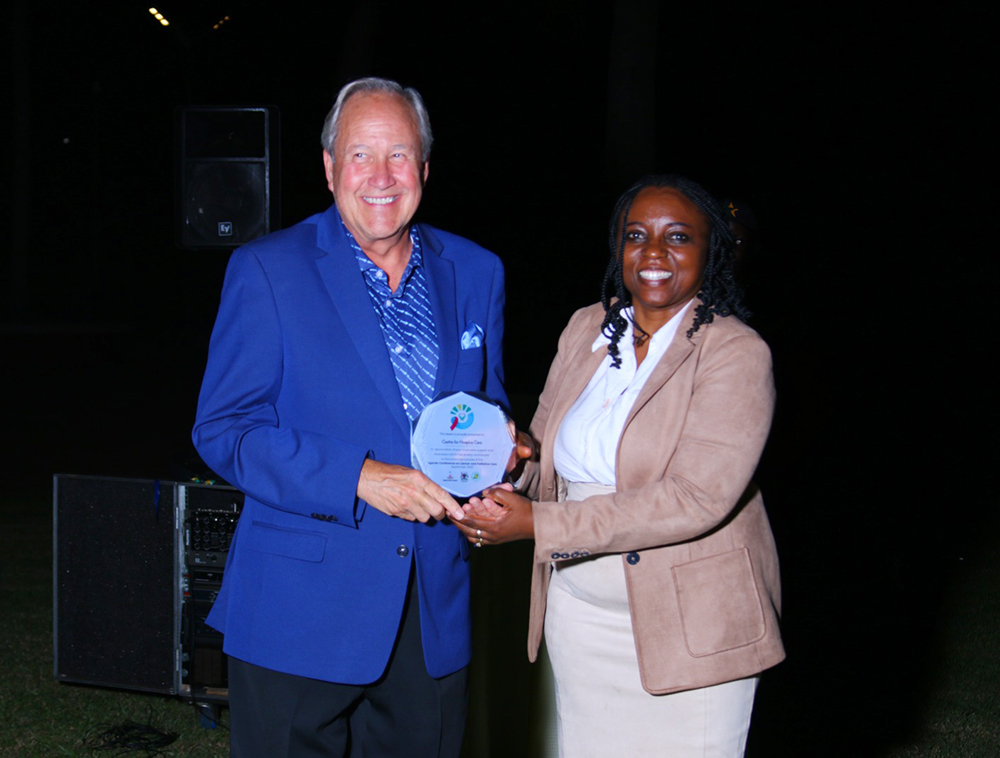Celebrating Progress at the 5th Uganda Conference on Cancer & Palliative Care
The 5th Uganda Conference on Cancer and Palliative Care (Sept 10 – 12, 2025) brought together participants from over eight countries and recorded strong attendance: 330 participants on day one, 450 on day two, and 315 on day three. Leaders from government, civil society, academia and partner NGOs convened under the theme “Embracing Uniqueness and Empowering Communities.” A total of 143 abstracts were submitted, resulting in 81 oral parallel presentations and 58 poster sessions. The program featured 12 parallel guest speakers, 17 plenary presentations, and two legacy lectures – Prof. Charles Mark Lwanga Olweny on The Evolution of Cancer Care and Treatment in Uganda, and Prof. Anne Merriman on Pioneering Palliative Care in Uganda and Africa.
Messages from the conference co-hosts
 Mark-Donald Mwesiga, Executive Director, PCAU
Mark-Donald Mwesiga, Executive Director, PCAU
In his remarks, Mark underscored the vital role of civil society in shaping Uganda’s cancer and palliative care landscape. He highlighted that the Palliative Care Association of Uganda (PCAU) – with 35 member organizations and about 1,800 individual members – has partnered closely with the Ministry of Health and the Uganda Cancer Institute (UCI) to extend care beyond hospitals, into communities and homes. Mark called for stronger government support for hospices and organizations that provide post-hospital care, particularly for patients whose goal is comfort rather than cure. He also launched the Compassionate Communities Initiative, envisioning every village in Uganda empowered to support people facing serious illness. Mark paid tribute to Dr. Samuel Guma of Kawempe Home Care and expressed gratitude to both local and international partners, including the Center for Hospice Care (CHC), for advancing palliative care in Uganda.
Dr. Jackson Orem, Executive Director, UCI
Dr. Orem emphasized several key pillars:
- Coordination and collaboration: government cannot address cancer alone; partnerships with PCAU, civil society and academia are essential.
- Human resources: UCI has developed multiple oncology training programs and graduated 28 fellows, significantly strengthening Uganda’s pool of cancer specialists. The conference celebrated this milestone, marking progress in both oncology and palliative care capacity.
- Regional cancer centers and training institutions: UCI is establishing new centers near universities to leverage local training capacity and improve access.
- Infrastructure: with expanding diagnostic, therapeutic and research needs, physical infrastructure and equipment must keep pace. Dr. Orem called for pooling of resources and stronger support from industry and partners to build up the necessary facilities.
Guest of Honor: Vice President Jessica Alupo
Represented by Hon. Anifa Kawooya, state minister for health (general duties), the vice president reaffirmed government’s commitment to scaling up cancer and palliative care as part of the national health agenda. She echoed the theme of embracing uniqueness and empowering communities, stressing that health is a shared responsibility. On behalf of the vice president’s office, she announced a contribution of 5 million Uganda shillings (approx. $1,400) to PCAU for patient support and encouraged joint action to expand cancer and palliative care beyond Kampala, strengthen prevention, education and screening, and improve palliative care delivery nationwide.
Other highlights included innovations in local pharmaceutical and biotech research. Notably, Dr. Mathias Magoola of Dei BioPharma announced that the U.S. Food and Drug Administration (FDA) has granted a waiver of the clinical trial period for two of his company’s therapies – pembrolizumab (Keytruda) and trastuzumab (Herceptin) – a milestone that could lower barriers to access for critical cancer treatments.
CHC’s Role & Contributions
 CHC was represented by Mike Wargo, vice president & COO, and Denis Kidde, international programs coordinator. In recognition of CHC’s invaluable support and dedication, which has contributed to the success of the Uganda Conference on Cancer and Palliative Care, CHC was presented with a commemorative plaque of appreciation.
CHC was represented by Mike Wargo, vice president & COO, and Denis Kidde, international programs coordinator. In recognition of CHC’s invaluable support and dedication, which has contributed to the success of the Uganda Conference on Cancer and Palliative Care, CHC was presented with a commemorative plaque of appreciation.
Mike served as a key panel discussant, contributing to conversations on governance, accountability, innovation and technology in healthcare, as well as a workshop on Building Compassionate Communities and Public Health Approaches – reflecting on the CHC-PCAU partnership. Denis co-chaired innovation and technology sessions, supporting presenters and facilitating audience engagement. The sessions emphasized inclusive, patient-centered care and the importance of community-led innovations in strengthening prevention, treatment, survivorship and ultimately advancing cancer and palliative care.
Mike and Denis’ participation reinforced CHC’s ongoing commitment to the PCAU partnership, helping to shape dialogue on sustainable models of care, governance and innovation in cancer and palliative care delivery. The 2025 plaque stands as a symbol of CHC’s long-standing partnership with PCAU and its shared vision of expanding access to compassionate care across Uganda. The conference highlighted Uganda’s progress in cancer and palliative care, while also underscoring persistent gaps: reaching rural and home-based patients, ensuring affordable access to quality medicines and sustainably scaling infrastructure and human resources. A shared vision emerged from government, civil society and partner organizations alike – health systems and communities empowered to respond compassionately, innovatively, and inclusively.
As the conference closed, participants voiced renewed resolve to translate the theme into action – expanding partnerships, securing financing, integrating care models and ensuring that every Ugandan facing serious illness can access not only treatment, but also dignity, hope and support. Following the conference, Mike and Denis are actively engaging with PCAU and its stakeholders (during the week of Sept 15) in a series of strategic meetings to further strengthen the CHC–PCAU partnership and advance programmatic initiatives.
